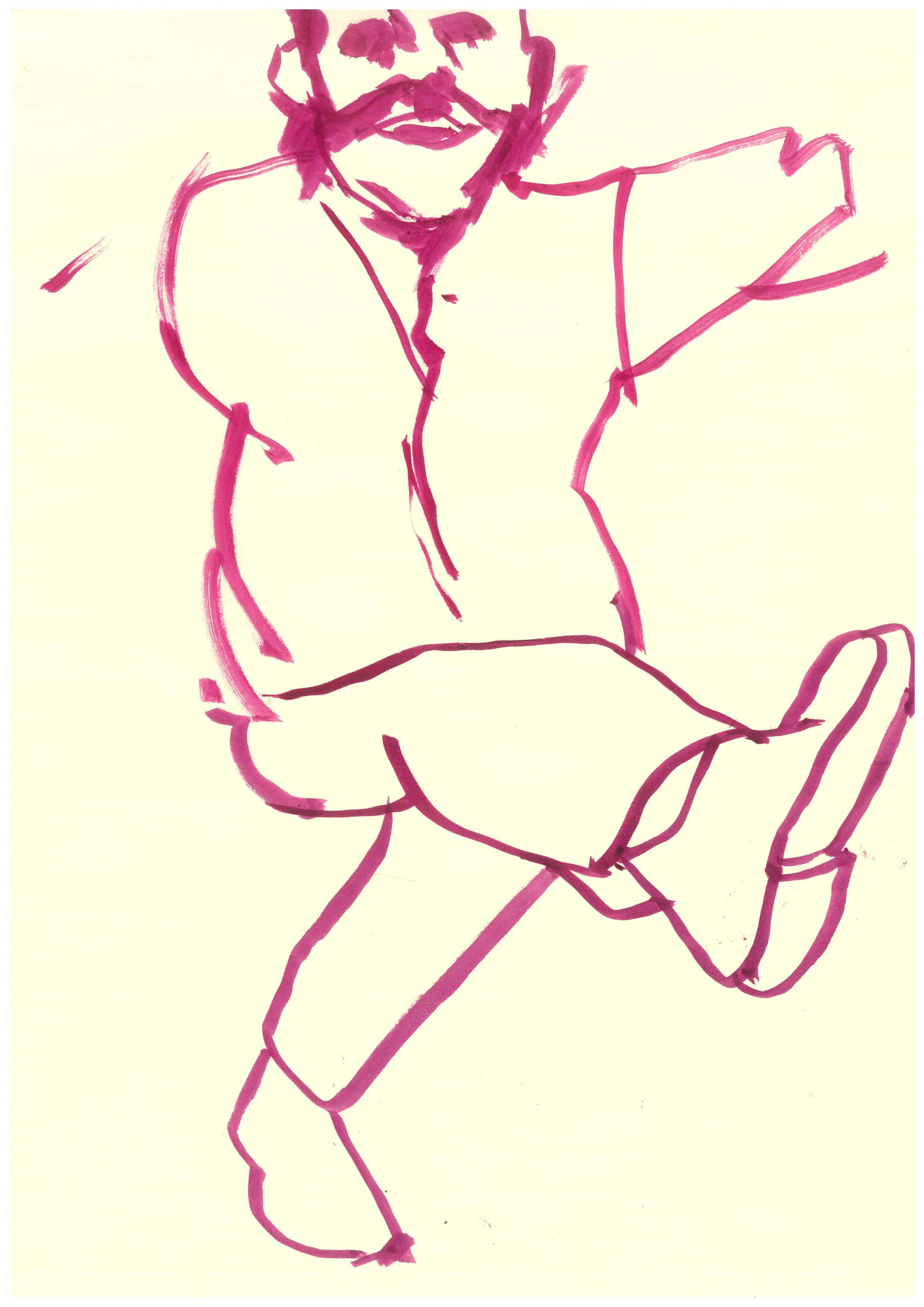Course Context
Course Context
3 days Print Project
During the three-day experimental collaboration with the painting students, I began with an image of Mary and Jesus. I scanned it through a scanner and started drawing with different mediums. I was somewhat clueless about what I was doing, but I enjoyed the process of exploring new materials.
After that, Fiona, the technician, recommended that I try monoprinting. I have always been interested in it but had failed miserably every time I attempted it. With her guidance, I learned that there are three main types of monoprints.
The first type is monotype. You roll ink on a smooth surface and then lightly place a piece of paper on top. The ink spills to any areas where you apply pressure. The second type is painted mono-printing, where you paint an image with ink on a smooth surface and then print it on paper. I found this technique unappealing as it only creates streaky lines; it's best used in conjunction with other techniques.
The last type, which is my favorite, involves rolling ink with a brayer onto a smooth surface and then wiping away the ink. This subtractive method essentially allows you to draw with light.
The thing I took away from this workshop is not how much I have experimented with, but rather how much work I produced throughout these three days. My productivity soared with the right tutor, inspiration, and colleagues surrounding me. “Print studios tend to accommodate the gregarious as well as the introverted, working side by side. Print studios are also the site of collaborative art practices,” Barbara Balfour stated in "The What and Why of Print." I have always resonated with this statement; I am introverted by nature, and the print studio has always felt like a second home to me. Engaging with others about their experiences and what led them to print is consistently interesting. Over these three days, I now truly understand what a thriving community can offer to everyone involved. It might be time to consider what will happen beyond college and how to maintain this sense of community after we part ways.
Yu Chen Lectures
Yu Chen is a very smart and dedicated individual. The first talk I heard from her was located in the Tate Modern. The thing that stuck with me is she told us to research or understand the artist first before going to his/her exhibition. Weirdly, I have never done that before. It is such a simple thing, the more you give, the more you can absorb back. I always thought of going to exhibitions as an experience, like a roller coaster ride. Instead, we should treat it as a conversation between you and the artist, but for any understanding to begin, contexts must be researched first.
In her artist talk, she went through her career as an artist. To be honest, those didn’t interest me enough to remember. The thing I took away is how confident she was when talking. She is from Taiwan and speaks English with a tint of a Chinese accent. Her articulations are extraordinary, every word she says feels like a confident punch. I have only heard this kind of voice before in a video of I.M. Pei. I strive to become someone who can talk and express him/herself like that in the future. This year, whenever there are presentations, I will not miss them no matter how much I hate presenting. Representing yourself is the most important skill of being an artist that I lacked.
Ian Monroe talk
Your Art has a future
A talk about structuring your artist career. I have seen people rise to fame in an instant, and I have seen others working tirelessly with no success in sight. I don't have much hope that my artwork with my theme could reach a large audience. Ian's approach to the art world differs from mine. He suggests that we be sustainable and take small steps at a time. It is like building with Legos: strong foundations with small gallery or pop-up shows, then build up from there. As an artist, I always put so much time into developing my artworks, but shows and exhibitions are honestly very exhausting. This talk reminded me of the importance of showcasing my work, no matter how small the showing is; putting it out there is always better than not showing at all. I should start contacting small galleries around London for that.
Pelzer-Montada, R. (2018) Perspectives on contemporary printmaking : critical writing since 1986. Manchester: Manchester University Press.

